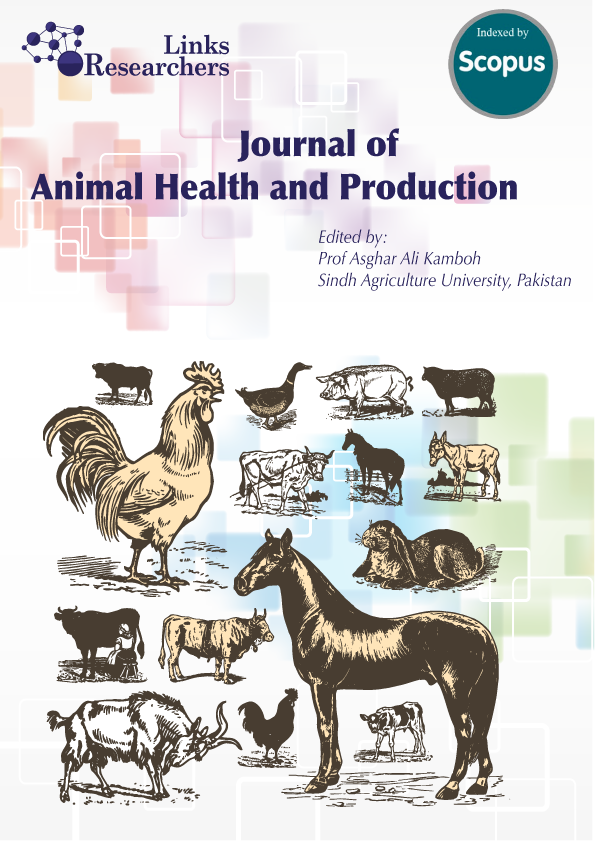Effects of Rumen-Protected D-Aspartate and Zinc Bio-Complex on Performance of Growing Male Goats Fed High-Concentrate Diets
Effects of Rumen-Protected D-Aspartate and Zinc Bio-Complex on Performance of Growing Male Goats Fed High-Concentrate Diets
Nittaya Thongtip1, Sukanya Poolthajit1, Sirikhan Thartrak1, Qiongxian Yan2, Suntorn Wittayakun1*
ABSTRACT
This study aimed to evaluate the effects of rumen-protected D-aspartate and zinc bio-complex on feed intake, nutrient intake, blood profiles, blood metabolites, and hormone concentration of growing male goats. Eight crossbred Boer (BW = 22.6 + 0.62 kg) growing male goats at approximately 12 months of age were assigned in a replicated 4x4 Latin square design. Treatments were as follows: 1) control with no supplementation (CON), 2) rumen-protected D-Aspartate (RDA), at 132.74 mg/kg body weight (BW), 3) zinc bio-complex (ZBC) at 73.74 mg/kg BW, and 4) supplementation of RDA at 132.74 mg/kg BW plus ZBC at 73.74 mg/kg BW (RAZC). All dietary treatments were provided in gelatin hard capsules prepared for each treatment except the control. All animals were individually fed roughage to concentrate at a ratio of 30 to 70 daily. The experiment consisted of four consecutive periods, with the first 14 d for dietary adaptation and the last 6 d for data collection each, and lasted for 80 days of overall trial. Results indicated that all supplementations did not affect feed and nutrient intake (p > 0.05). However, adding RDA, ZBC, and RAZC significantly increased blood hematocrit (p = 0.010). Adding either RDA or ZBC and RAZC combination did not affect blood metabolites regarding glucose (p = 0.074) or blood urea nitrogen (p = 0.364). Creatine was the lowest in goats fed RDA but the greatest in ZBC (p = 0.003) compared with CON and RAZC. Supplementation of RDA, ZBC, and RAZC affected concentrations of free T4 hormones, especially for ZBC (p = 0.008). However, there were no effects on free T3 (p = 738), TSH (p = 0.403), and testosterone (p = 0.671). These results suggest that supplements did not significantly affect feed and nutrient intake, complete blood count, blood metabolites, and hormones. However, there was little benefit to animal health when growing male goats were fed high-concentrate diets. Further longer-term trials should be conducted to determine additional effects on productive performance and changes in semen quality.
To share on other social networks, click on any share button. What are these?





